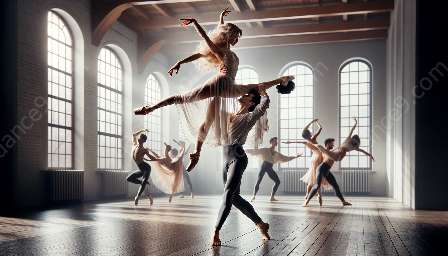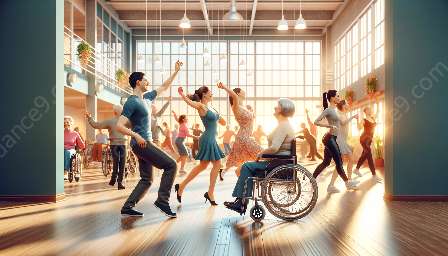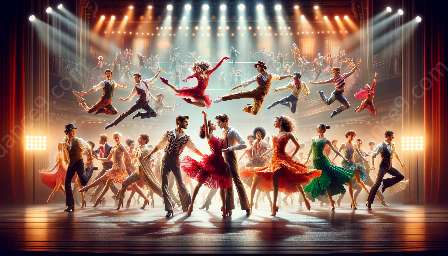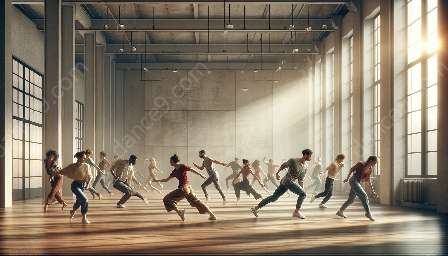Improvised dance, a spontaneous and often collaborative form of movement expression, has significant psychological effects on individuals. When exploring improvisation in dance, it becomes apparent that it not only enhances creativity and self-expression but also impacts mental well-being, cognitive function, and emotional regulation. These effects have profound implications for dance education and training, as they can influence the development of dancers' artistic skills, emotional intelligence, and overall psychological resilience.
Understanding Improvised Dance
Improvised dance is characterized by the spontaneous and unstructured nature of movement, allowing dancers to explore their creativity without predefined choreography. This form of dance often involves individual or group improvisation, in which dancers respond to internal impulses, external stimuli, and fellow dancers' movements in real time. The freedom to express without constraints in improvised dance enables a deep sense of liberation and personal connection to movement. Moreover, improvisation in dance encourages dancers to access their authentic emotions, thoughts, and physical sensations, leading to a profound psychological experience.
The Psychological Effects
Engaging in improvised dance can yield a myriad of psychological effects that contribute to the overall well-being of dancers. One of the most notable effects is the enhancement of creative thinking and problem-solving skills. Through the process of improvisation, dancers are challenged to think spontaneously and make decisions in the moment, fostering adaptability and innovation. This cognitive stimulation is essential for nurturing a dancer's artistic expression and opens new pathways for self-discovery and imaginative exploration.
Furthermore, improvised dance serves as a powerful outlet for emotional expression and regulation. Dancers often express a sense of catharsis and emotional release during improvisational experiences, as they delve into their inner emotions and translate them into physical movements. This emotional processing not only provides a therapeutic release but also cultivates a heightened sense of self-awareness and emotional intelligence, which are essential skills for dancers in their artistic journey.
The psychological effects of improvised dance also extend to the realm of mindfulness and presence. Dancers engaging in improvisation are immersed in the present moment, fostering a sense of mindfulness that enhances their ability to connect with their bodies and surroundings. This heightened presence not only enriches the dance experience but also contributes to overall stress reduction and improved mental clarity.
Implications for Dance Education and Training
The psychological effects of engaging in improvised dance have profound implications for dance education and training. Educators and trainers can harness the benefits of improvisation in dance to promote holistic development in dancers. By integrating improvisational practices into dance curricula, students can develop not only technical proficiency but also artistic creativity, emotional resilience, and cognitive agility.
Furthermore, incorporating improvisational approaches in dance education nurtures a supportive and collaborative learning environment. It encourages dancers to embrace vulnerability, take creative risks, and develop a deep sense of trust in their artistic instincts and fellow performers. This collaborative spirit cultivated through improvisational experiences enhances interpersonal skills and fosters a sense of community within dance training programs and artistic ensembles.
Conclusion
In conclusion, the psychological effects of engaging in improvised dance are multifaceted and impactful, influencing creativity, emotional well-being, and cognitive abilities. As dancers delve into the realm of improvisation in dance, they unlock a world of self-expression, emotional exploration, and cognitive growth. Embracing these psychological effects has the potential to transform dance education and training, fostering well-rounded, resilient, and artistically expressive individuals equipped to thrive in the dynamic world of dance.















